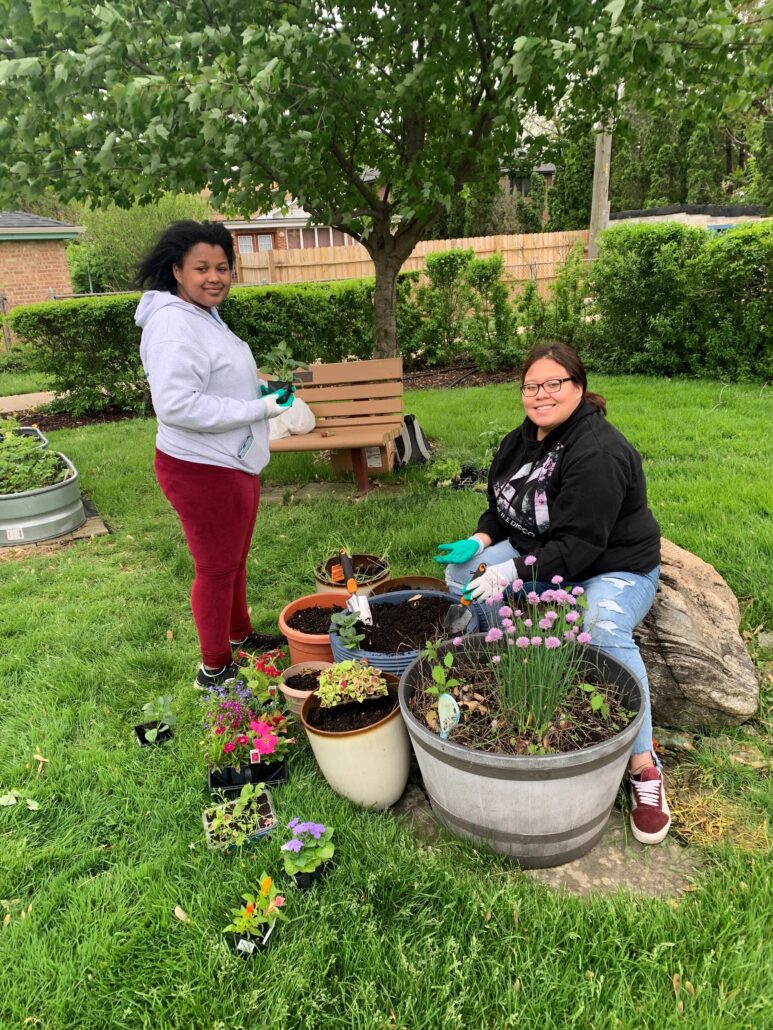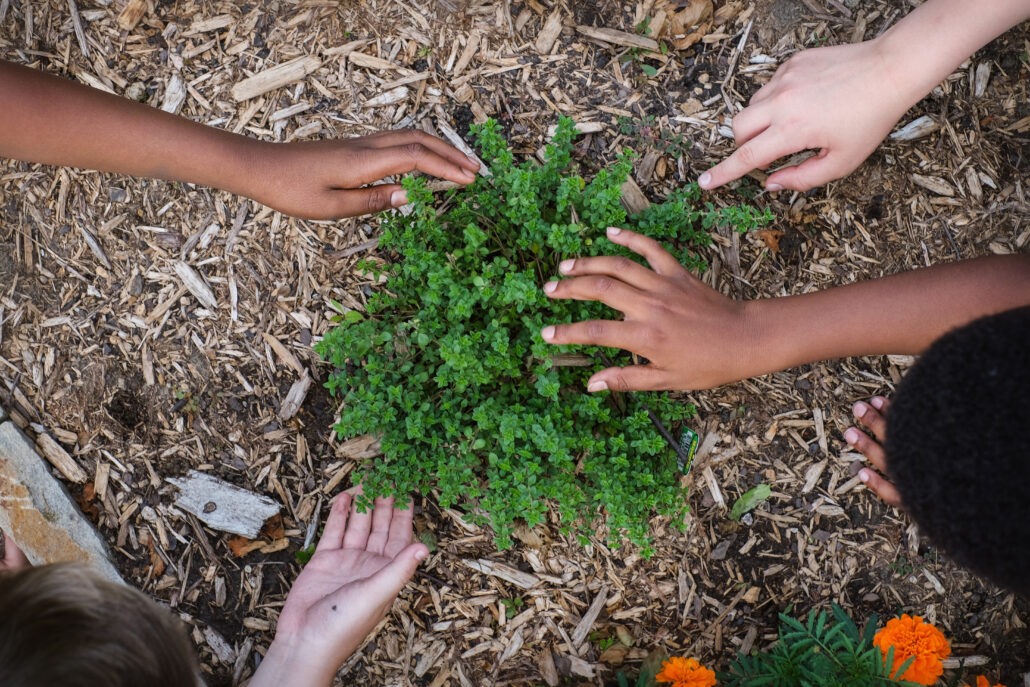The Christmas Season Begins with Annual Tree Lighting
A beloved holiday tradition kicked off the Christmas season at Mercy Home when our young people, coworkers, board members, and...
December 9, 2025
September 20, 2022
In the eyes of founding members of a burgeoning environmental advocacy club at Mercy Home, the organization resembles a small society where people live and work around the clock, every day of the year. How that society manages its environment can have implications, and hopefully impact, on the world beyond Mercy Home’s doors.
The group is developing plans to help the entire organization reduce its ecological footprint in the years ahead. According to the group’s advisor, Emily Neal, the idea for the club caught the attention of Mercy Home President and CEO Fr. Scott Donahue. Fr. Scott met with the Home’s Craft Cottage (arts program) coordinator Becca Bowlin, whose passion for environmental advocacy inspired the proposal, and Gloria Aguilera, who works in the Home’s education and career resources department and has worked on environmental issues long impacting her community on Chicago’s Southeast Side. The team now also includes a second member of the Home’s education and career resources department, Ariana Allen.

The group presented a series of goals for the Home that included targets around recycling, composting, planting of non-invasive, native plants, use of eco-friendly materials throughout its food services, among several others. Some longer-term goals proposed involve things like solar panels, bike racks, charging stations, and hybrid or electric vans.
While the group had outlined goals on a 10-year timeline, according to Bowlin, a very receptive Fr. Scott responded, “let’s shorten it to three years!”
“This is an important initiative for our Home and it’s consistent with our Gospel mission to care for one another,” Fr. Scott said. “Pope Francis has called on world leaders to address the critical challenges to our planet’s health, and that really extends to each of us as individuals as well. So, I’m eager to see the ways that this group will help us align and act on those goals.”
Bowlin acknowledged that the scope of the climate crisis can seem overwhelming. But even in the face of news about crop failures and plummeting biodiversity, “you have to start somewhere,” she said. “You can’t make global change without acting locally.”

Further, if the enormity of the problem for the planet makes environmental challenges difficult to grasp, the impact of pollution on communities here in Chicago is felt intimately. Gloria Aguilera is motivated by her own experience living amidst the remnants of heavy industry on the city’s Southeast Side, where the steel mills and gas plants hugged Lake Michigan’s southern shoreline into neighboring Indiana.
“The odor was so bad,” Aguilera said, “and the soil was contaminated with lead,” presenting serious health challenges to residents.
In fact, the program will address ways in which lower-income communities and communities of color often bear the brunt of environmental damage. “I would love to bring [learnings from the program] back to my neighborhood,” Aguilera said. She also envisions some of the environmental experts and activists she’s worked with to visit the Home as part of the educational component of the initiative. It’s primarily through this interchange of ideas and awareness that the program could have an impact beyond the Home itself, with youth and coworkers taking enhanced eco-literacy and green habits back to the places they live, learn, and work.
Allen agreed and stressed the value of teaching younger kids about how they can be better stewards of the environment, including specific habits that she really wasn’t exposed to growing up. “I didn’t learn about [environmental issues] until college,” she said, adding that her alma mater, Loyola University Chicago, was considered the greenest university in Illinois.
Now, as an educator and group member, Allen envisions the possibilities involved in teaching kids about things like aquaponics and how to request a rain barrel from the city of Chicago.
“If we can start kids at 10, 11, 12 to be more green,” Allen said, “it will create exponential change.”
While the club will involve and impact our youth as well as coworkers, Bowlin says it’s important not to put the burden of cleaning up the earth on the youth. “We have to make sure we’re not relying on Gen Z to save us,” she said. “It’s still our duty to clean up the earth we inherited.”
Aguilera expressed a similar desire to leave a better world for those who will come after.
A beloved holiday tradition kicked off the Christmas season at Mercy Home when our young people, coworkers, board members, and...
December 9, 2025
Our young people marked Thanksgiving week with spiritual celebrations at both of our locations and meals featuring all the classic...
December 3, 2025
As people traveled near and far to be with loved ones this Thanksgiving, we hosted a special celebration for Community...
December 3, 2025
Comments